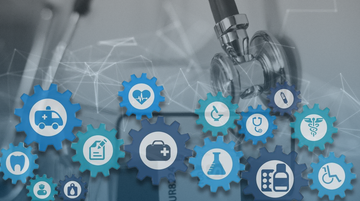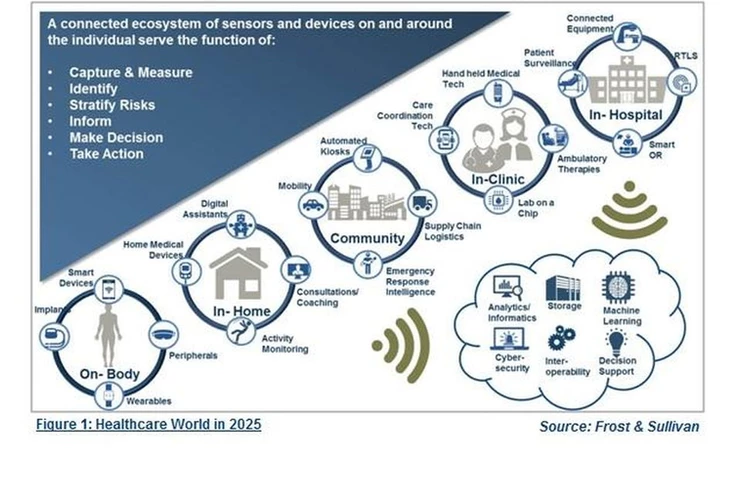Blog
Machine Learning and SAP Drive the Healthcare Industry
December 30, 2019
December 30, 2019

There has been a spike in healthcare concerns and crisis throughout 2019. So much that the World Health Organization’s has implemented a 5-year strategic plan, the 13th General Programme of Work, to resolve some of these major issues in our society. The healthcare industry is extremely important for the well-being of our world and is constantly evolving and improving over time.
While the changes in technology over the past decade are impressive, there is one in particular making its way to the top and will define the way we look at health care data. ERP systems have an extremely important role in data collection. In the healthcare industry, this includes a broad spectrum of systems to help better the functioning process of patient analytics, billing, medical research, and patient relationships.
Having an intelligent ERP system within the healthcare industry allows for hospitals and medical professionals to improve their services. SAP predicts that within 2 years, Big data and analytics adoption rate will improve up to 76% and cloud-computing at 65% in the healthcare industry. Not only is it important to provide great service to those with healthcare needs, but this means that the data needs to be transferred in a timely matter. Creating accessible applications for aiding patient choices and information. SAP, Artificial Intelligence and Machine Learning all tie in to achieve this goal.
SAP platforms are secure, reliable and cost-effective.
Back in April, SAP released the S/4HANA Cloud for Patient Accounting. This system tracks analytics from patient databases and uses artificial intelligence in order to create automatic billing statements based on the information inputted. This is an administration system that is put in place to increase efficiency and accessibility while cutting costs. The possibilities are endless. Data is streamlined at an extremely fast speed, meaning that we could possibly stop diseases from spreading. The data base performs analytics on all inputed data and creates algorithms.

1) SAP systems can collect individual patient's symptoms and diagnoses, and form a database so that in the future, medical professionals will know the answer to their problems. It can even go as far as giving the correct medication for said symptoms. This resolution makes it less likely for patients to be misdiagnosed.
2) Researchers were able to train computers to analyze previous CT Scans for lung cancer patients and compile diagnoses and causes based off of the results. Using 6,716 cases, the system ended up being 94% accurate, which is impressive.
3) A healthcare company, Medopad, is using AI and machine learning to better diagnose and track Parkinson's, Cancer and heart disease. They have designed a smart phone app with wearable devices that is currently in trial. This could help millions of people in the future.
4) This is a weird and interesting one... A stomach health company, Auggi, is building an app to allow users to track their gastrointestinal health. The partner company, Seed Health, is collecting photos of people's poop to create a database to track bowel issues and possibly diagnose people who have these issues.
Overall, the goal of using SAP systems, AI and machine learning in the healthcare industry, like any other industry, is to save time, increase accuracy and save money. While an SAP system may not be cheap, this is the type of technology that is able to rule-out the majority of human error, resulting in: better healthcare practice, spending less money in the long run, and ultimately, happy patients and customers.
Approyo is an SAP partner, meaning that we sell SAP software as a service. Approyo handles everything from the administration and hosting your data to having 24/7 support for your business. We run over 300 cloud platforms on a daily basis. If you would like more information on the services we provide, click here. If you would like to set up a consultation or request a quote, click here.